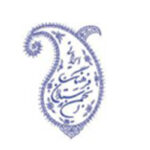Message from the Universal House of Justice marking the bicentenary of the Birth of the Báb
To all who have come to honour the Herald of a new Dawn
Dearly loved Friends,
Consider with us. Whenever a divine Educator appears in the world, a Figure Whose teachings will come to shape human thought and action for centuries thereafter—at such a dramatic, seismic moment, what would we expect?
The appearance of every such Educator, as recorded in the Sacred Texts of the world’s great faiths, is a pivotal event that propels the advancement of civilization. The spiritual stimulus each has provided throughout history has enabled the radius of human cooperation to extend from the clan, to the tribe, to the city-state, and to the nation. And each of these great Teachers promised that, in time, another divine Figure would appear, Whose advent should be anticipated and Whose influence would reform the world. No wonder, then, that the coming of the Báb, Whose Birth two centuries ago we now honour, gave rise to unprecedented ferment in the country where He was born. The moment of His appearance, like the appearance of all such Figures, precipitated the release of powerful spiritual forces—but there was no accompanying spectacle. There was instead a late evening conversation, in a modest Persian dwelling, between a student of religion and his youthful Host, during which that Host revealed that He was the Promised One, the divine Educator His guest had been seeking. “Observe attentively,” He remarked, “Might not the Person intended … be none other than I?” It is this Youth, the Báb, that we acclaim as the One Whose coming—after an interval of a thousand years—shed the light of divine guidance once again upon the human world.
From this first moment unfolded all that has since come to pass. The Báb’s Writings flowed profusely from His pen, disclosing profound truths, dismissing superstitions that held sway in His day, urging the people to recognize the significance of the times, castigating the hypocrisy of their leaders, and summoning the world to an exalted standard of conduct. “O peoples of the earth!” He declares in one of His major works, “Verily the resplendent Light of God hath appeared in your midst … that ye may be guided aright to the ways of peace and, by the leave of God, step out of the darkness into the light and onto this far-extended Path of Truth.” His influence spread with extraordinary rapidity, reaching beyond the limits of Persia. Observers were astonished alike by the fast-swelling numbers of His followers and by their deeds of unsurpassed bravery and devotion. Accounts of the Báb’s life—the swift arc it traced and the tragic drama that ended it—induced curious souls to travel to Persia and investigate further, and inspired a range of artistic tributes to His Person.
The brilliance of the light of the Báb seems the more dazzling when set against the darkness of the social milieu in which He appeared. Nineteenth-century Persia was far removed from its glory days when its civilization was the envy of the world. Ignorance now prevailed; senseless dogmas went unchallenged; inequality was fuelled by rampant corruption. Religion, the foundation of Persia’s former prosperity, had become a body devoid of its animating spirit. Each succeeding year offered the subjugated masses only disillusionment and hopelessness. Oppression was complete. Then, like a spring storm, the Báb came to purge and purify, to uproot the withered and spent customs of a wayward age, and to wash away the obscuring dust from the eyes of those blinded by illusion. But the Báb had a special object in view. He sought to prepare people for the imminent appearance of Bahá’u’lláh—the second of the Twin Luminaries destined to bring new light to humankind. This was His most insistent theme. “When the Daystar of Bahá will shine resplendent above the horizon of eternity”, He instructed His followers, “it is incumbent upon you to present yourselves before His Throne.”
Thus did the Báb and, with even greater splendour, Bahá’u’lláh illuminate a society and an age shrouded in darkness. They inaugurated a new stage in social evolution: the stage of the unification of the entire human family. The spiritual energies They released into the world infused a new life into every sphere of endeavour, the results of which are evident in the transformation that has occurred. Material civilization has advanced immeasurably; astounding breakthroughs in science and technology have been achieved; the gates to the accumulated knowledge of humanity have been flung open. And principles set out by Bahá’u’lláh for the upliftment and progress of society and for ending systems of domination and exclusion have come to be widely accepted. Consider His teaching that humanity is one people, or that women are equal with men, or that education must be universal, or that rational investigation of the truth must prevail over fanciful theories and prejudices. Across all nations, a large segment of the world’s people now agrees with these fundamental values.
Nevertheless, arguments against these values, previously confined to the margins of serious thought, are also resurgent in society—a reminder that ideals require the force of spiritual commitment to cement them. For it is one thing to acknowledge something in principle; it is quite another to embrace it with all of one’s heart, and harder still to refashion society in ways that give collective expression to it. Yet this is the aim of communities emerging across the globe that are patterned on Bahá’u’lláh’s teachings. These communities are striving to focus the light of those teachings on the chronic problems that afflict the societies around them; they are devising programmes of practical action centred on spiritual precepts. These are communities that champion the education of both girls and boys under all circumstances; that subscribe to an expanded conception of worship which includes work carried out in the spirit of service; that look to spiritual aspirations, rather than self-interest, as the ever-flowing springs of motivation; and that inculcate a resolve to advance individual and social transformation. They seek to bring about spiritual, social, and material progress simultaneously. Above all, these are communities that define themselves by their commitment to the oneness of humanity. They value the rich diversity represented by all the world’s kindreds, while maintaining that one’s identity as a member of the human race has precedence before other identities and associations. They affirm the need for a global consciousness, arising from a shared concern for the well-being of humankind, and they count all the peoples of the earth as spiritual brothers and sisters. Not content with simply belonging to such communities, Bahá’u’lláh’s followers are making constant effort to invite like-minded souls to join them in learning how to put His teachings into effect.
This brings us to the crux of our case. The matter at hand is a challenging one, and requires candour. There are many noble and admirable causes in the world, and they arise from particular perspectives, each with its own merit. Is the Cause of Bahá’u’lláh merely one amongst them? Or is it universal, embodying the highest ideals of all humanity? After all, a Cause that is to be the wellspring of enduring justice and peace—not for one place or one people, but for all places and all peoples—must be inexhaustible, must possess a heavenly vitality that allows it to transcend all limitations and encompass every dimension of the life of humanity. Ultimately, it must have the power to transform the human heart. Then let us, like the Báb’s guest, observe attentively. Does not the Cause of Bahá’u’lláh possess these very qualities?
If the teachings brought by Bahá’u’lláh are what will enable humanity to advance to the highest levels of unity, then one must search the soul for the right response. The multitudes who recognized the Báb were summoned to heroism, and their magnificent response is recorded by history. Let every one who is awake to the condition of the world, and to the persistent evils that warp the lives of its inhabitants, heed Bahá’u’lláh’s call to selfless and steadfast service—heroism for the present age. What else will rescue the world but the efforts of countless souls who each make the welfare of humanity their principal, their dominating concern?
The Universal House of Justice
Category: Institutions, Universal House of Justice








